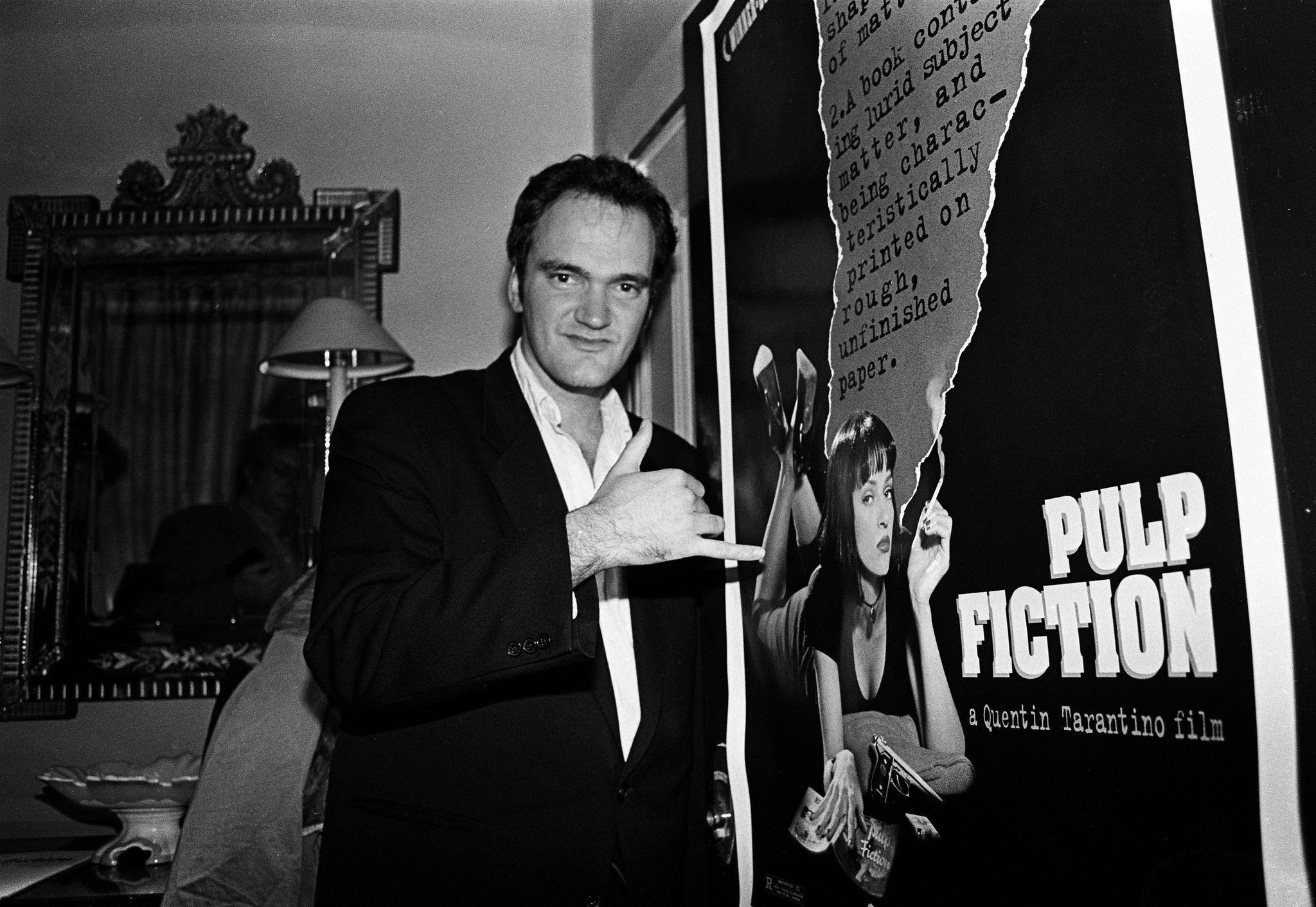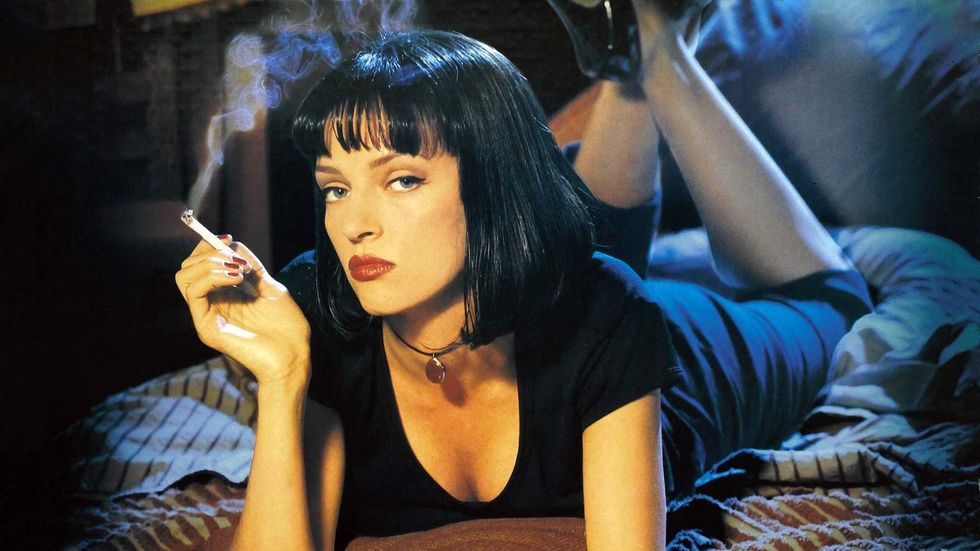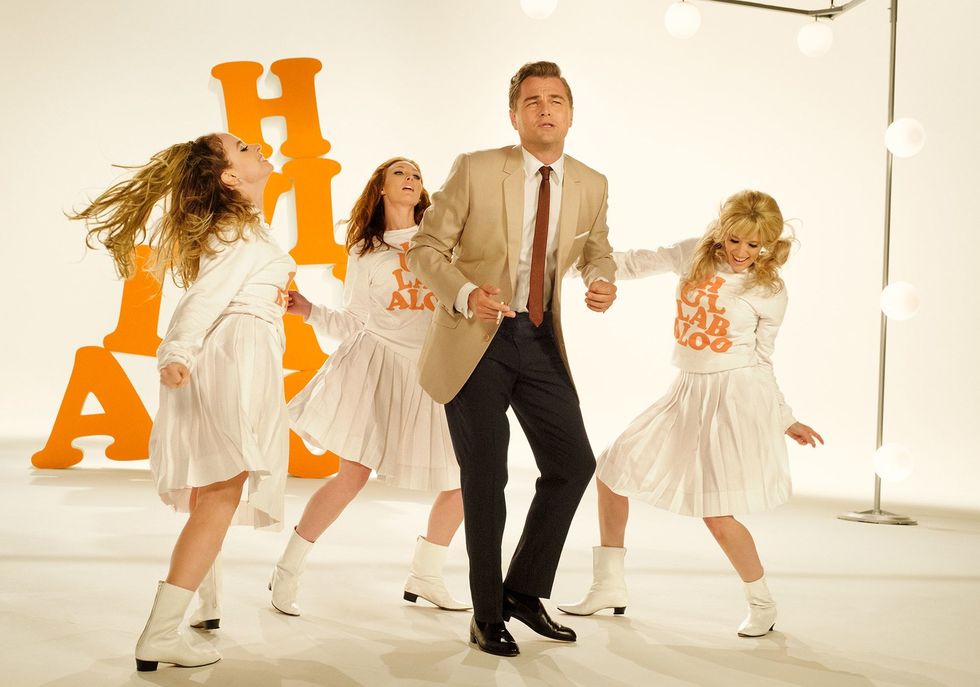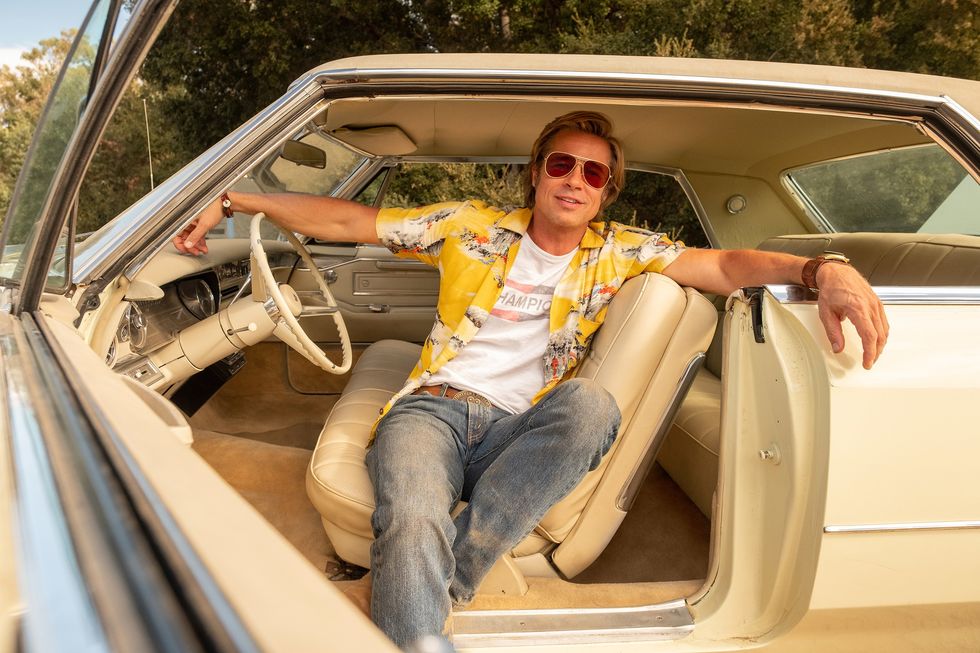Quentin Tarantino started writing Pulp Fiction straight after his directorial debut, Reservoir Dogs, was released to critical acclaim. By the time he begun casting the follow-up, everybody wanted to be in it. Its release cemented him as one of the most exciting directors working at the time: an auteur paying respect to classic cinema but giving it a violent, musical twist.
Judging a director's work against their breakthrough film is, of course, a reductive way to look at their career. But Pulp Fiction, which turns 25 this week, was a peak that cast a long shadow. It's hard not to feel Tarantino has never quite lived up to its early promise.
Jackie Brown was an admirable successor, but the back-to-back Kill Bill films that followed seemed to move Tarantino further away from saying anything important, his style now little more than Spaghetti Western micro-close ups and action sequences with kitschy soundtracks.
His 2009 film, Inglourious Basterds, earned the director eight Academy Award nominations, but the only win came for Christoph Waltz's portrayal of Hans Landa. Colonel Landa – perhaps not coincidentally Tarantino's favourite character he's ever written – carries the rest of the film, the most memorable aspect of it amidst a plot which often drags and ultimately ends in farce.
The years that followed produced the uncomfortable Django Unchained and its follow-up, the woeful The Hateful Eight, which at times came across like Tarantino was trolling audiences. What other explanation is there for a white screenwriter, criticised for his flagrant use of the N-word, using it more than 100 times in the former? You get the sense that, like Tarantino did to a heckler when receiving the Palme D'or in 1994, he's giving a finger to the audience while smiling.
Pulp Fiction, though not without its controversies, avoided the juvenility that plagues Tarantino's ostensibly grown-up work. It was, and still is, the embodiment of cool, a film which has nearly 1m photographs on Instagram tagged with its title – nearly double that of Goodfellas or The Godfather – and is now preserved in the Library of Congress National Film Registry.
In Vincent Vega and Mia Wallace, Tarantino penned the perfect sparring couple, a duo who made black trousers and white shirts so iconic that fancy dress shops the world over stock still stock replicas of them. Who hasn't joked about ordering a Royale with cheese when in McDonald's? Who can't do some version of the front-crawl dance-floor shimmy when Chuck Berry's 'You Never Can Tell' comes on?
In a 1994 Vanity Fair profile of Tarantino, Lynn Hirschberg wrote that, "Reservoir Dogs was a sensation – the first coffeehouse action movie. Meaning, people who thought they were too cool for Lethal Weapon would see this film."
Tarantino's early work demonstrated his ability to make highbrow action films. Pulp Fiction uses the word 'fuck' two-hundred and seventy-five times, but still poses intelligent questions about violence, loyalty and revenge. Its legacy in cinema is indisputable: it was one of the first films to use internet advertising, and changed independent cinema forever after making over $200m from a $20m budget.
Earlier this year, Tarantino walked the red carpet of Cannes Film Festival with his best chance of taking home the the festival's prestigious Palme D'Or since he won the prize for Pulp Fiction twenty-five years ago. But it was not to be – Once Upon a Time in Hollywood lost out to Bong Joon-ho's satirical horror, Parasite.
Once Upon a Time in Hollywood was widely described as Tarantino's best project since his sophomore effort, with the man himself even saying it's, “probably the closest to Pulp Fiction that I have done.” It captured how the romance of the late Sixties teetered on the edge of seismic change, the era of peace and love brought to a violent end on 8 August 1969, with the murders on 10050 Cielo Drive.
Though it enjoyed rave early reviews, the conversation around the film has since soured, with perhaps its best shot at an Academy Award lying with Brad Pitt's craggy stuntman, Cliff Booth.
Just as it was once the perfect time for Pulp Fiction, in some senses the time couldn't be less ripe for a new Tarantino film. His longstanding connection to Harvey Weinstein still tails his work, as does his defence of Roman Polanski and his history of poorly representing women and minorities in his films.
Once Upon a Time in Hollywood has succeeded in reinstating Tarantino's reputation after a few dodgy films, but the adrenaline shot of the unexpected that Pulp Fiction was to audiences in the Nineties is gone.
I realised this back in August when I tried to convince a friend to see Tarantino's latest by saying that it was being called his best since Pulp Fiction. "They always say that," he replied. "It never is."
















